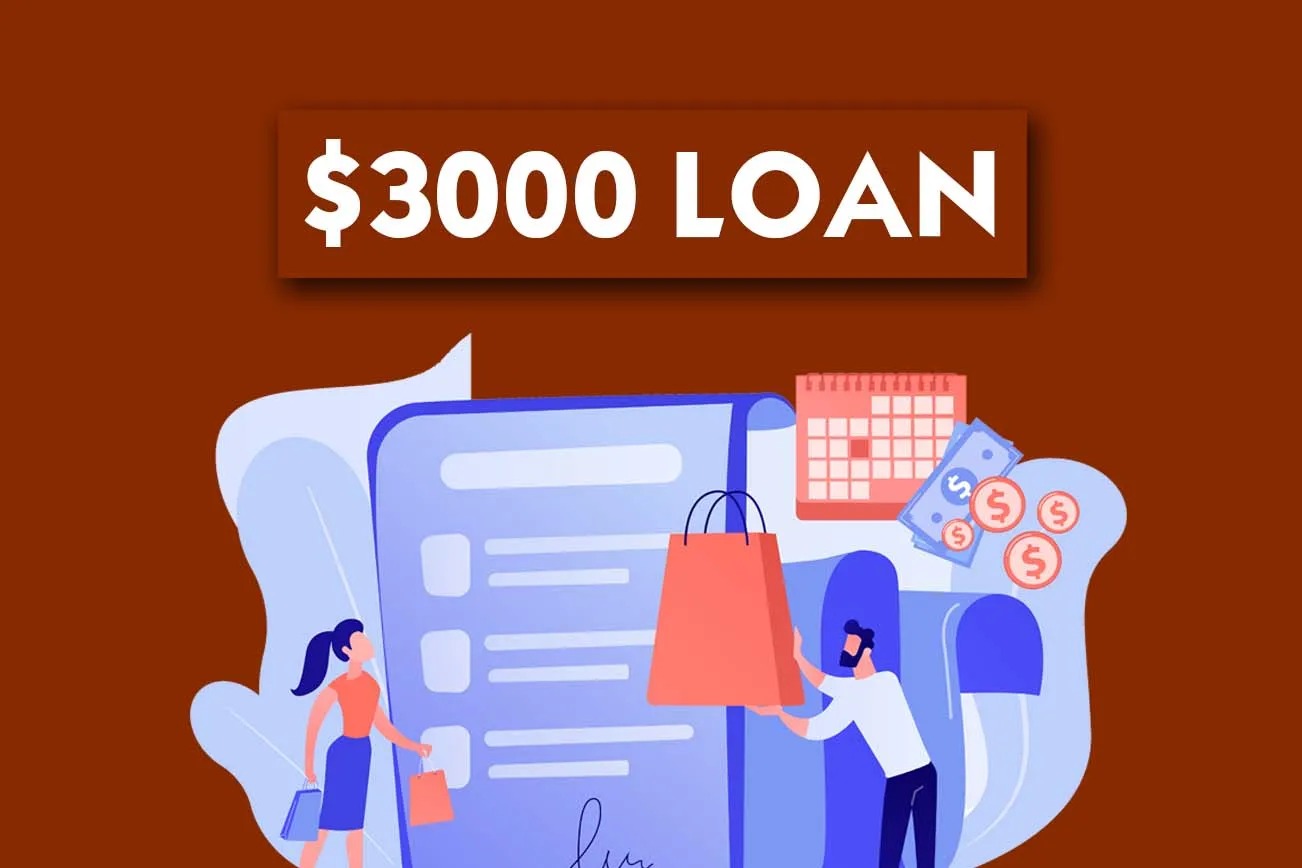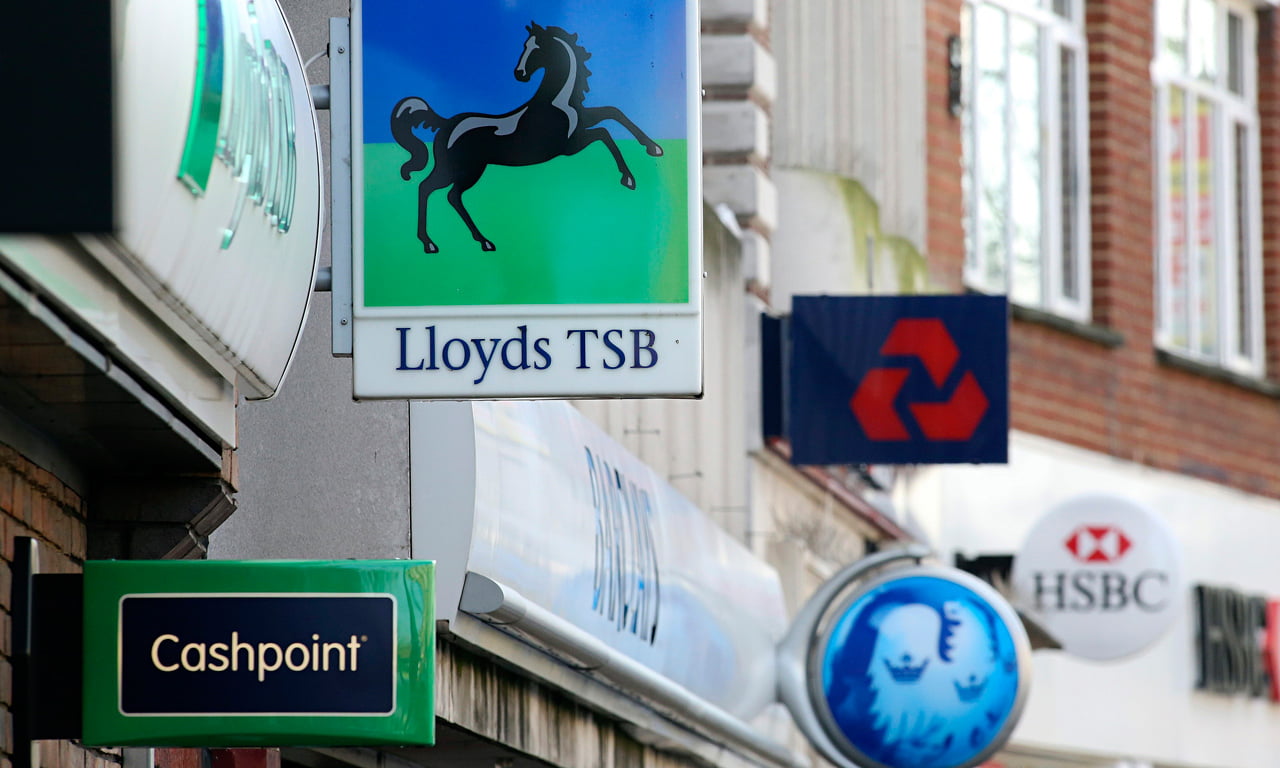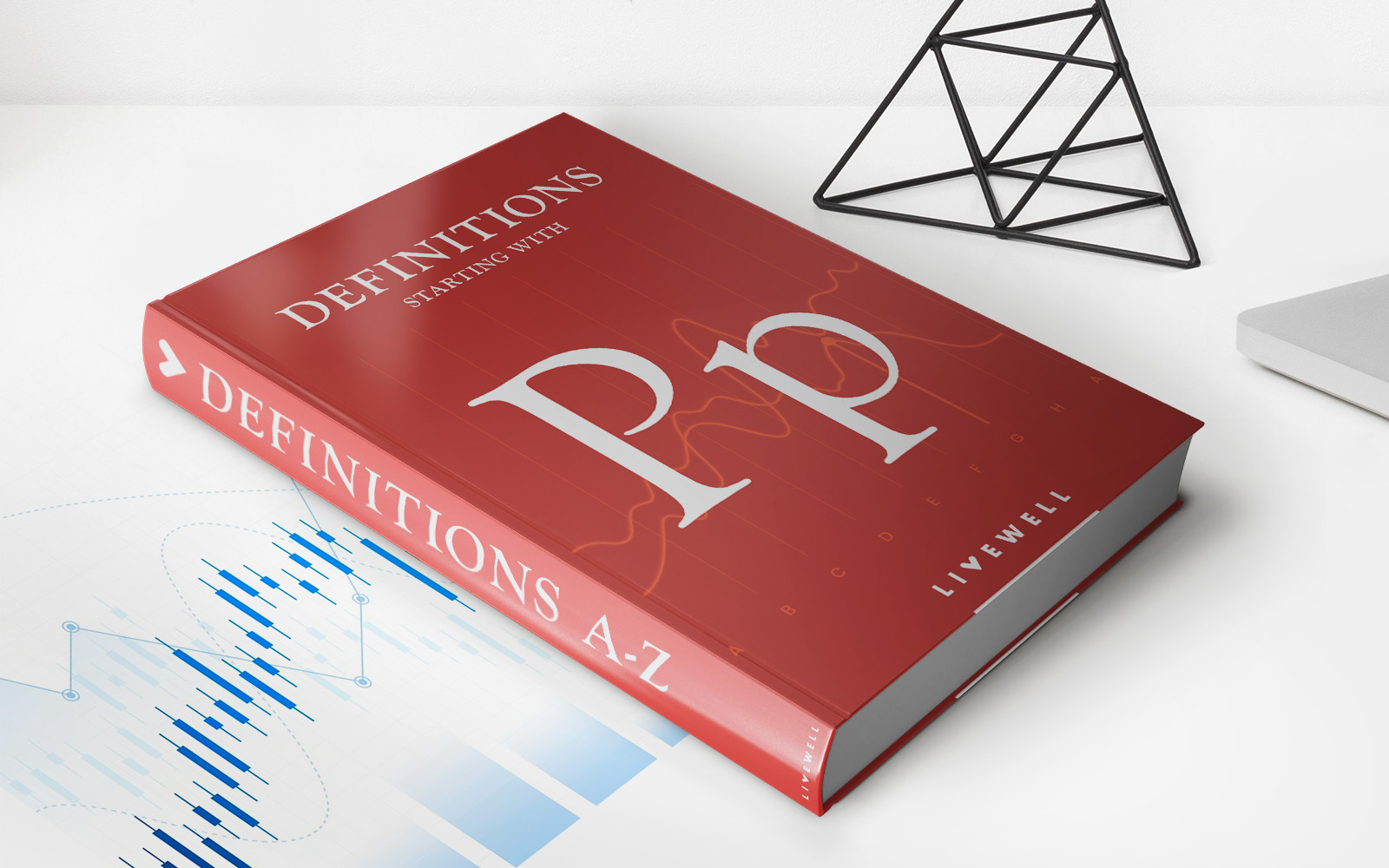

Finance
How Can I Get A Bank Account With Bad Credit
Published: January 8, 2024
Looking to open a bank account but have bad credit? Discover how to improve your financial situation and secure a bank account despite your credit history.
(Many of the links in this article redirect to a specific reviewed product. Your purchase of these products through affiliate links helps to generate commission for LiveWell, at no extra cost. Learn more)
Table of Contents
Introduction
Having bad credit can affect various aspects of your financial life, including your ability to open a bank account. Banks typically review your credit history and score when deciding whether to extend their services to you. This can be discouraging for individuals who are struggling with bad credit and are in need of a reliable banking solution.
Fortunately, there are options available for people with bad credit who are looking to open a bank account. Many financial institutions understand the challenges that individuals with less-than-perfect credit face and have designed specific account options to meet their needs.
In this article, we will guide you through the process of getting a bank account with bad credit. We will explore the impact of bad credit on banking, how to research banks that offer accounts for people with bad credit, the requirements for opening an account, alternative banking options, and how to rebuild your credit to improve your banking options. By following these steps, you can regain control over your financial life and establish a healthy banking relationship.
It is important to remember that although having bad credit may limit your options initially, there are still viable solutions available to you. Through careful research, determination, and a commitment to improving your credit, you can secure a bank account that fits your needs and helps you on your path to financial stability.
Understanding the Impact of Bad Credit on Banking
When it comes to opening a bank account, your credit history and score play a significant role. Banks use this information to assess your financial responsibility and determine the level of risk associated with extending their services to you. If you have bad credit, it can have several implications on your ability to open a bank account:
- Denial of Traditional Bank Accounts: Banks may reject your application for a standard checking or savings account if your credit score falls below their required threshold. This can be frustrating, as these accounts typically offer more features and benefits than alternative options.
- Higher Fees and Restrictions: If you manage to open a bank account with bad credit, you may encounter higher fees and stricter limitations. Banks may charge additional fees for various transactions or limit your access to certain services.
- Inability to Access Credit or Loans: In addition to bank accounts, bad credit can also impact your ability to secure credit cards, loans, or mortgages. This can hinder your financial flexibility and limit your options when it comes to managing your money and making necessary purchases.
Understanding these impacts is crucial in order to find the right strategy for opening a bank account with bad credit. By being aware of the challenges ahead, you can plan accordingly and explore alternative options that cater specifically to individuals facing credit challenges. Keep in mind that while bad credit may present obstacles, it is not a permanent roadblock, and with time and effort, you can improve your creditworthiness.
Researching Banks that Offer Accounts for People with Bad Credit
When looking to open a bank account with bad credit, it is crucial to research financial institutions that offer specialized account options for individuals in similar situations. Here are some steps you can take to find banks that are willing to work with you:
- Online Research: Start by conducting online research to identify banks that specifically cater to individuals with bad credit. Look for institutions that advertise “second chance” or “fresh start” accounts targeted towards those who have had credit issues in the past.
- Read Reviews: Once you have identified potential banks, read customer reviews and testimonials to gauge their reliability and customer satisfaction. Look for feedback from individuals who have similar financial circumstances to get a better sense of the bank’s offerings and customer service.
- Contact Banks Directly: Reach out to the banks directly to inquire about their account options for individuals with bad credit. Ask about the requirements, fees, and any limitations associated with the accounts they offer.
- Compare Account Features: Compare the features of the accounts offered by different banks. Look for benefits such as online banking, mobile apps, bill payment services, and access to ATMs. Consider which features are most important to you and align with your banking needs.
- Consider Local Credit Unions: In addition to traditional banks, explore local credit unions in your area. Credit unions are nonprofit organizations that often have more flexible requirements and may be more willing to work with individuals who have bad credit.
By conducting thorough research and comparison, you can identify banks that are willing to offer banking solutions for individuals with bad credit. Take the time to review their account terms, fees, and customer feedback to ensure that you make an informed decision that suits your financial needs.
Meeting the Account Requirements
Once you have identified a bank that offers accounts for people with bad credit, it’s important to understand and meet the specific requirements they have in place. Although these requirements may be more lenient compared to traditional bank accounts, there are still certain criteria you will need to fulfill. Here are a few common requirements to consider:
- Identity Verification: Like any banking institution, the bank will require you to provide proof of your identity. This typically involves presenting valid identification documents such as a driver’s license, passport, or social security number.
- Minimum Age Requirement: Most banks require applicants to be at least 18 years old to open an account. However, some banks may have specific age restrictions or offer specialized accounts for minors with bad credit.
- No Outstanding Debts: Some banks may require you to clear any outstanding debts with them or other financial institutions before opening an account. This is to ensure that you are starting fresh with your banking relationship.
- Opening Deposit: Many banks require an initial deposit to open an account. This amount can vary depending on the institution and account type. Be sure to check the minimum deposit requirement and ensure you have the necessary funds available.
- No History of Fraudulent Activity: Banks may conduct a thorough check to ensure that you do not have a history of fraudulent or illegal activity. This is to protect their interests and maintain the integrity of their banking system.
- Proof of Address: You may be required to provide proof of your current address, such as a utility bill or rental agreement. This helps the bank verify your residency and enables them to contact you if necessary.
Meeting these account requirements is essential to successfully open a bank account with bad credit. Take the time to gather the necessary documents and fulfill each requirement before applying. This will increase your chances of approval and help you establish a positive banking relationship moving forward.
Exploring Alternative Banking Options
If you are struggling to open a traditional bank account due to bad credit, don’t lose hope. There are alternative banking options available that can still provide you with the essential financial services you need. Consider exploring the following options:
- Second Chance Checking Accounts: Many banks offer second chance checking accounts specifically designed for those with bad credit. While these accounts may come with some limitations and fees, they can be a viable option to manage your finances and rebuild your credit.
- Prepaid Debit Cards: Prepaid debit cards work similarly to traditional bank accounts but operate on a “pay-as-you-go” basis. You load funds onto the card and use it for purchases and withdrawals. These cards do not require a credit check and can be used for online transactions and everyday spending.
- Online Banking Platforms: Online-only banks or digital banking platforms may be more lenient when it comes to credit requirements. These platforms often offer mobile banking apps, online bill payment services, and easy access to ATMs. Research reputable online banks that prioritize accessibility and convenience.
- Credit Unions: Credit unions, which are member-owned financial cooperatives, often offer more flexible banking options compared to traditional banks. They may have accounts available specifically for individuals with bad credit or offer credit-building products such as secured credit cards or credit builder loans.
- Community Banks: Local community banks may have a more personalized approach and be open to working with individuals who have bad credit. They often prioritize building relationships with their customers and may offer tailored account options to meet their specific needs.
Exploring these alternative banking options can help you find a solution that suits your financial situation and allows you to manage your money effectively. Remember to compare the terms, fees, and services offered by each option to ensure they align with your needs and budget.
While alternative banking options can serve as temporary solutions, it’s important to work towards improving your credit over time. By demonstrating responsible financial behavior and paying your bills on time, you can gradually rebuild your credit and gain access to more traditional banking services in the future.
Rebuilding Credit to Improve Banking Options
Rebuilding your credit is an essential step towards gaining access to a wider range of banking options and financial opportunities. While it may take time and effort, there are several strategies you can implement to improve your creditworthiness:
- Pay Your Bills on Time: Consistently making your payments by the due date is one of the most impactful ways to rebuild your credit. Late payments can have a significant negative impact on your credit score, so prioritize timely payment of your bills.
- Reduce Your Debt: High levels of debt can negatively affect your credit score. Create a budget and develop a plan to pay down your existing debts. Consider focusing on high-interest debts first and gradually work towards reducing your overall debt load.
- Limit New Credit Applications: Multiple credit applications within a short period of time can adversely impact your credit score. Be mindful of applying for new credit unless absolutely necessary. Instead, focus on improving your current credit standing.
- Monitor Your Credit Report: Regularly check your credit report for accuracy and identify any errors or discrepancies. If you find any incorrect information, report it to the credit bureau and work to have it rectified.
- Build Positive Credit History: If your credit history is limited or you have no credit, consider building a positive credit history by using a secured credit card or becoming an authorized user on someone else’s credit card. Make small purchases and pay them off in full each month to establish a positive payment history.
- Utilize Credit Counseling: If you’re struggling to manage your debts, credit counseling services can provide guidance and support. They can help you create a personalized plan to pay off your debts and manage your finances more effectively.
Rebuilding your credit takes time, patience, and financial discipline. By implementing these strategies and maintaining consistent, responsible financial behavior, you can gradually improve your credit score and expand your banking options.
Remember, improving your credit is not just about gaining access to better banking services, but it also opens doors to better loan terms, lower interest rates, and improved financial opportunities overall. Stay committed to managing your finances responsibly, and the rewards will follow.
Maintaining a Healthy Banking Relationship
Once you have successfully opened a bank account with bad credit or chosen an alternative banking option, it is important to maintain a healthy banking relationship. Here are some tips to help you do just that:
- Stay Focused on Financial Responsibility: Continue practicing responsible financial habits by budgeting, tracking your expenses, and paying your bills on time. This will not only help you maintain a positive banking relationship, but it will also contribute to improving your credit over time.
- Monitor Your Account Regularly: Keep a close eye on your bank account activity. Set up alerts or notifications to stay informed about any transactions or changes to your account. This will help you detect any unauthorized activity promptly and take necessary action.
- Build a Relationship with the Bank: Take the time to build a rapport with your bank. Establishing a good relationship with your bank can lead to benefits such as waived fees, personalized assistance, or even better credit opportunities in the future.
- Communicate with Your Bank: If you are facing any financial difficulties or anticipate difficulty in meeting your obligations, communicate with your bank. They may be able to offer assistance or work out a solution to help you through challenging times.
- Educate Yourself: Stay informed about banking regulations, policies, and changes. Understanding the terms and conditions of your account will help you avoid any unnecessary fees or surprises.
- Explore Additional Services: As your financial situation improves, consider exploring additional services offered by your bank, such as credit-building products, savings accounts, or investment opportunities. These services can help you further enhance your financial well-being.
By maintaining a healthy banking relationship, you not only benefit from the services and support provided by your bank but also lay the foundation for future financial growth and stability. It is essential to remain proactive, responsible, and communicative to ensure a positive and fruitful banking experience.
Conclusion
Opening a bank account with bad credit may present initial challenges, but it is certainly possible. By understanding the impact of bad credit on banking, researching banks that offer accounts for people with bad credit, meeting the specific account requirements, exploring alternative banking options, and working towards rebuilding your credit, you can regain control over your financial life.
Remember, while alternative banking options can provide temporary solutions, it is important to work towards improving your credit over time. By practicing responsible financial habits, paying your bills on time, reducing your debt, and monitoring your credit report, you can gradually improve your creditworthiness and gain access to a wider range of banking options.
Maintaining a healthy banking relationship is crucial for long-term financial success. Stay focused on financial responsibility, monitor your account regularly, build a relationship with your bank, communicate openly, and educate yourself about banking services and policies.
Opening a bank account with bad credit is just the beginning of your financial journey. By taking the necessary steps to manage your finances effectively and rebuild your credit, you can secure a brighter and more stable financial future.
Remember, financial situations can improve over time, and with patience, dedication, and the right strategies, you can overcome the challenges of bad credit and achieve your financial goals.














